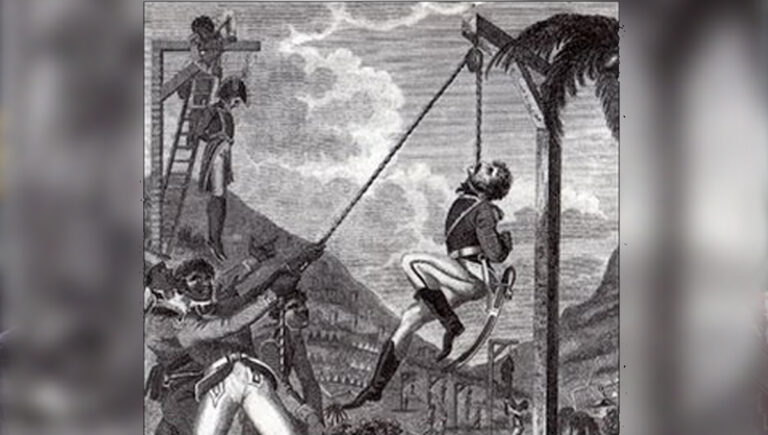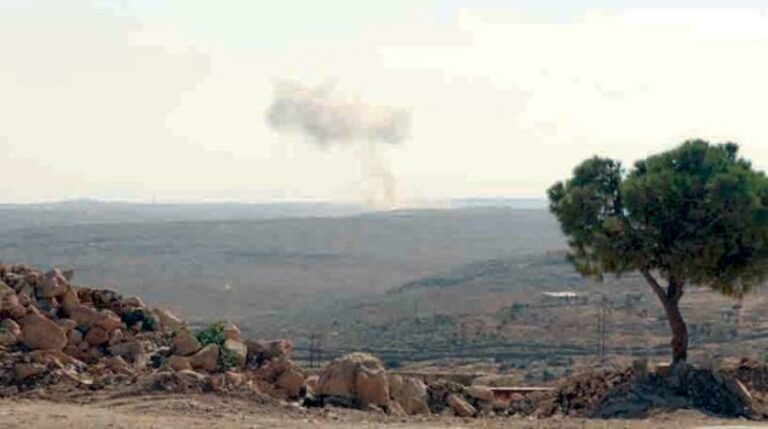This is an episode of Reality Asserts Itself, produced on March 17, 2014. Mr. Porter tells Paul Jay about his new book “Manufactured Crisis: The Untold Story of the Iran Nuclear Scare”.
PAUL JAY, SENIOR EDITOR, TRNN: Welcome back to The Real News Network. I’m Paul Jay in Baltimore. And this is Reality Asserts Itself with our guest, Gareth Porter, who joins us in the studio.
Thanks for joining us, Gareth.
GARETH PORTER, INVESTIGATIVE JOURNALIST: Thanks again.
JAY: So, one more time, Gareth is a historian, an investigative journalist. He covers U.S. and foreign and military policy. His most recent book is Manufactured Crisis: The Untold Story of the Iran Nuclear Scare.
So, in the first part we talked a bit about Gareth’s background, but we got up to the point where it was clearly the policy of the American neocons, of Israel—and I think we now know the Saudis were very much on board—from the late 1990s, at least, if not before, regime change in Iran was the big foreign policy objective. We talked about the Project for the New American Century, which kind of laid this all out fairly clearly, a document created by neocons towards the end of the Clinton administration. As the weapons of mass destruction narrative helped Bush and Cheney invade Iraq, they needed a narrative for an attack eventually on Iran. And that begins what Gareth picks up in his new book.
So thanks, Gareth.
So they needed to manufacture a whole narrative that would justify war. So how do they go about doing that?
PORTER: They went about doing it first of all by establishing John Bolton, who was the primary policymaker on WMD for the Bush administration, was—.
JAY: Who helped manufacture the whole Iraq narrative.
PORTER: He was the person who was coordinating this on the American side with Israel, working very closely with them, clearly. And his first move was to make sure that the IAEA would not be able to allow Iran to get by without being accused of having a nuclear weapons program, and he didn’t believe that would be possible unless some special moves were made.
JAY: Okay. Just a little bit of context. In 1968, under the Shah, Iran signs the NPA, the non-proliferation agreement, and agrees not to proliferate nuclear weapons technology and not to build weapons. Just for a little piece of context, it’s around—not that much later than that, but certainly Israel does not sign the agreement and, as we now all know, has many nuclear weapons—I think, what, it’s at least 200, if not more. So does India and Pakistan develop nuclear technology. Pakistan, and probably India, but certainly Pakistan directly with American assistance developed nuclear technology, do not sign the NPA. And I’ll repeat it again, but we’re going to pick up the story now: not any real evidence that Iran has ever violated the NPA, even though people keep suggesting they are.
Alright. Pick it up.
PORTER: So what Bolton was concerned about was that the IAEA’s handling of the Iran file was too easy on Iran. He was demanding actual evidence, actual proof that Iran had a covert nuclear weapons program. And, in fact, in 2003, the IAEA published a report, in November ’03, that said, you know, Iran had not reported all of its experiments using nuclear material during the previous years, but that it did not have any evidence that Iran had in fact done this in order to carry out a nuclear weapons program. There was no evidence of that.
So the Bush administration people were apoplectic about that, and particularly John Bolton. And so he was determined to move that file out of the IAEA into the UN Security Council. He talks about this in his memoirs, that he would make sure that Mohamed ElBaradei, the director-general of the IAEA at that point, would not be able to frustrate the strategy that they had in mind, which was to build a case that Iran was in fact a would-be nuclear power, to use that as a basis for, as you have pointed out, the military option against Iran, which it was understood in the inner core of the Bush administration that they might have to use military force as Iran got closer and closer to what they said was a bomb. And that, of course, was the Israeli position as well at that point. So that was the initial phase of this.
And around the same time, the Israelis then had a brilliant idea, which was that in the absence of any proof that they could come forward with to show that Iran was, you know, trying to get nuclear weapons, they would create a file of documents, a cache of documents, which would be attributed to a covert nuclear weapons program on the part of the Iranians. They would give it to the Mojahedin-e-Khalq, the terrorist organization, so-called—not just so-called, but listed as a terrorist organization, with good reasons, by the State Department and other European countries. And then that would be passed on to Western intelligence, ultimately to be used to make the public case by the United States [crosstalk]
JAY: How do we know that the documents the MEK handed over came from Israel?
PORTER: Well, that’s what I’m getting to, because that’s the major revelation in my book. I learned this from a former senior foreign office official in Germany named Karsten Voigt. He was in charge of coordination of German-U.S. relations and had been since 1997, until he retired in 2010. He was the only person who had held that position all that time. And I interviewed him in March 2013. (7:01) He told me that in November 2004, after Colin Powell had made a public statement basically invoking this information from these documents without mentioning them specifically, and talked about Iran trying to mate a missile with a weapon, the BND, the German intelligence service, got in touch with him, and they were quite alarmed about this, because, they said, we know all about these documents; they came from one of our sources, who was somebody that we didn’t really trust; we knew he was a Mojahedin-e-Khalq member. (7:46) And therefore they did not think that this source was trustworthy. And so now they find Colin Powell invoking this information, looking like he was trying to build a case for war against Iran.
And, of course, only two years earlier the same thing had happened on Iraq. The BND had a source, now known as Curveball, who had made up these stories about mobile bioweapons labs that Colin Powell had then used in the UN speech. So they were afraid that the Bush administration was going to do the same thing on Iran that it’d done on Iraq. And so they were alarmed. And they were going to him because he was the U.S. guy in the foreign office. They told him about this, and he understood from this that they wanted him to do something to warn the Americans.
JAY: What year are we in?
PORTER: November 2004. So a few days after that meeting with the BND people, senior members of the BND, this guy, Carson Voigt, went to The Wall Street Journal and told them—he was quoted as saying, in The Wall Street Journal, the United States and Europe should not make their policy on the basis of these documents; they were brought in by a dissident group, an Iranian dissident group. That’s all that—that’s the way it was printed in The Wall Street Journal. So he was doing his part to try to warn the Americans.
But, of course, we know that the BND had warned the CIA, George Tenet, two years earlier about Curveball and he didn’t do anything about it. So it’s clear that the CIA knew about this as well, they knew this came from the MEK, and they weren’t going to do anything about it either.
JAY: What is the attitude towards all this of the American intelligence agencies? ‘Cause it’s not too much later, in 2007, their national security estimates come out and clearly say there is no weapons program. There may have been something before ’73, which the Iranians, I believe, deny, but the American intelligence agencies concluded that there was something pre-’73.
PORTER: Two thousand three, yes.
JAY: Yeah.
PORTER: Two thousand three.
JAY: I’m sorry. But nothing now. So they seem to have discounted this material.
PORTER: Well, here’s what actually happened. I mean, I’ve gotten the full story about that 2007 national intelligence estimate from Thomas Fingar, who was in charge of it and who I interviewed last year when he was in the U.K.—I happened to be there as well at the same time. And Fingar told me that, in fact, although the people doing the estimate were committed to members of Congress, senior people in Congress, who they promised this estimate to, they said they were going to reevaluate Iran’s nuclear intentions, and very thoroughly. They weren’t going to depend on previous estimates. They weren’t going to even pay any attention to previous assessments. They were going to start afresh and evaluate on the basis of whatever information they could find, carefully evaluate and analyze the intentions of Iran. They didn’t do it. He said, six months after they had started, when they did a first draft, they had essentially reaffirmed the previous judgments of the intelligence community, which had said Iran does have, in fact, a nuclear weapons program. They did in 2001. Two thousand five, again they reaffirmed that there was an Iranian nuclear weapons program. So they didn’t do what they had set out to do.
JAY: Which is telling Bush–Cheney what they wanted to hear.
PORTER: Well, in a sense I think they had become captive to this narrative that they had internalized in the intelligence community.
But there’s another factor here, which relates precisely to the previous theme that we’d been talking about, and that is that I ask specifically to Fingar: what about the laptop documents, this set of documents which had been used to show that Iran had a secret nuclear weapons program? He said, well, yes, I mean, this was a very significant part of our thinking, because before those documents, there had been some ambiguity about the Iranian nuclear intentions with those documents that was clearer. So they obviously took them seriously. They believe they’re authentic. And they were relying on them in large part in making their judgments.
So this is an NIE that is seriously flawed. It’s based on false information. It’s based on false analysis of [crosstalk]
JAY: This is ’07?
PORTER: The ’07.
JAY: Well, when does the estimate come—when is the estimate when they say there is no weapons program?
PORTER: Well, they were saying that there was a weapons program in 2003, 2001 to 2003, in this 2007 estimate. But then they said they found—and this is what changed things—they found information—they obviously cracked somebody’s computer, although they’re not—they never said that. They cracked some computers in Tehran, and they were able to get a rather angry statement by somebody who had been involved in doing research related to nuclear weapons, saying, we’ve been shut down, I can’t do this anymore, and they were upset about it. And so that, apparently, was the basis for the people doing the NIE to say, we can now confirm that there was a nuclear weapons program from 2001 to 2003.
But that’s not the whole story. And what I show in my book is that the evidence that there was an actual nuclear weapons program, rather than independent work by a few people or, you know, possibly, you know, one or two people doing experiments or whatever, we don’t know what they did. I couldn’t find out from him, you know, what kind of evidence—I don’t think they knew anything about what was actually done. So the evidence of an actual nuclear program, even 2001 to 2003, is extremely weak.
JAY: Okay. But let’s—whether there was or wasn’t, the ’07 intelligence estimate concludes that there isn’t now.
PORTER: There was not then, that there was not then. That’s precisely right.
JAY: Yeah, which took a lot of the wind out of the Cheney–Bush sails heading towards war with Iran.
PORTER: But until they found that evidence, they were still saying that there is a nuclear weapons program today. As of mid 2007, they were still saying it on that first draft. But they changed it after they got the new evidence.
JAY: But coming out and saying that was—flew in the face—
PORTER: That’s right.
JAY: —of the whole official narrative and everything Bush and Cheney wanted.
PORTER: My point is that they came very close—
JAY: I get it.
PORTER: —to reaffirming that there was still a nuclear weapons program in mid 2007.
JAY: Based on this MEK stuff.
PORTER: Right. Right.
JAY: But then they must discount the MEK stuff, then.
PORTER: But they didn’t. They didn’t discount it.
JAY: No, but when they finally come out—.
PORTER: No, they didn’t discount it, they still didn’t discount it, because it was about 2001 to 2003.
JAY: Oh, the MEK stuff was about the earlier period.
PORTER: Yes.
JAY: At any rate, the NIE does come out in ’07, and it certainly takes the steam away from what—if Cheney was heading towards war with Iran, which a lot of people think that’s what he wanted. And in the next part of our interview, I guess, we will get into all this, because it seemed pretty clear they wanted this war and didn’t get it. And my question will be: why? And that’s what we’re going to pick up on the next segment of our series of interviews on Reality Asserts Itself on The Real News Network.
Never miss another story
Subscribe to theAnalysis.news – Newsletter
“Gareth Porter is an American historian, investigative journalist, author and policy analyst specializing in U.S. national security issues. He was an anti-war activist during the Vietnam War and has written about the potential for peaceful conflict resolution in Southeast Asia and the Middle East.”









